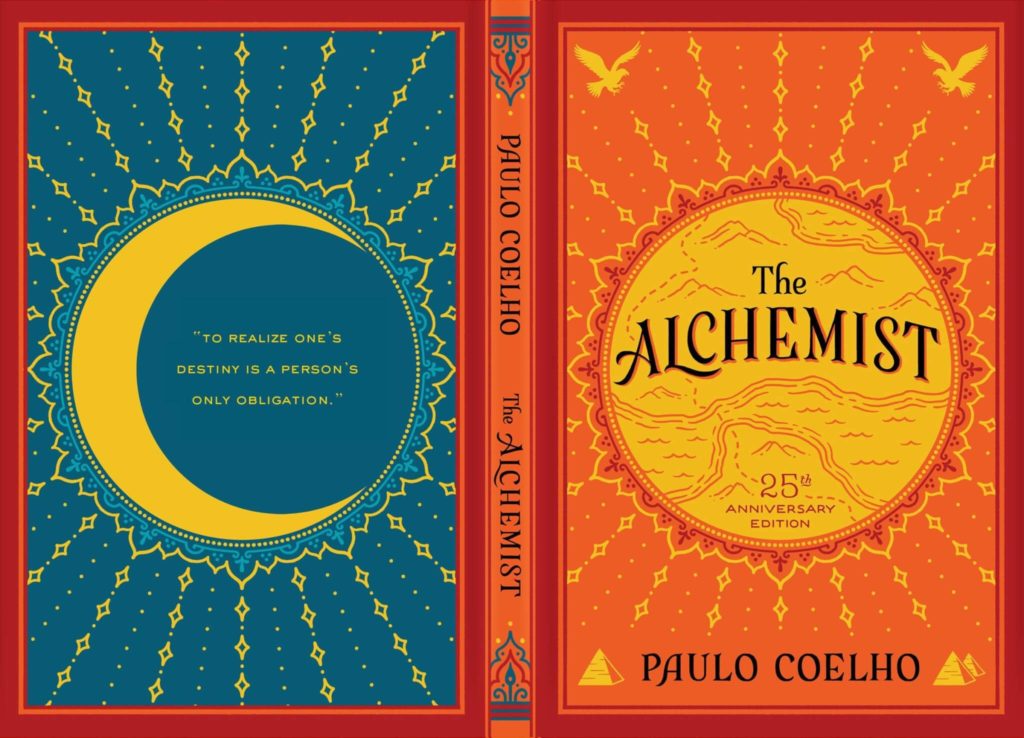Every once in a while a book captures a truth so well it changes everything. That book for me is The Alchemist by Brazilian-born author Paulo Coelho. Coelho wrote it in his native Portuguese, and the English version reads a little clunkily in my opinion. It’s a bit disjointed and herky-jerky. But the book still gets under my skin.
It is an allegorical novel, a story about much more than the story.
The Alchemist’s primary theme is “When you want something, all the universe conspires in helping you to achieve it.”
It seems crazy, this notion that if you want something, everything around you will help you get it. But I think there’s something to the idea, and I’d like to unpack it here with some help from The Alchemist.
1. Know What You Want
The first step, of course, is to know what you want. That’s not always easy, but wonder and imagination can help. Stanford-educated psychologist Gay Hendricks encourages people to think for a week or so about what they most enjoy doing.
That’s a key to what you want.
(Can I tell you something? As I write this, every other sentence I want to stop, wave and say, “Hey, I know this sounds woo-woo and silly and unbelievable. I get it, I sort of believe that too. And yet I’ve seen enough evidence of the truth of what I’m saying, I want to keep trying it out.” OK, confession over.)
The first step is to know what you want, to wonder, maybe for a week, “What do I most enjoy doing?”
That hopefully will lead you to what you want. I love helping writers birth their books. When I’m talking with a writer about her book, time stands still. I could do it forever. I might be tired by the end of the conversation, but it’s good tired, like reaching a new athletic high.
It feels a bit like falling in love, actually. When you’re falling in love, time doesn’t matter and reality itself seems suspended somehow. Like the world is holding its breath to see what happens next. That’s how I feel when talking with a writer about the book they want to get published.
What I want is to do that all the time—to help writers think about their books and develop them and build an audience with a transformative message.
That’s my jam. What’s yours?
[Tweet ““Every once in a while a book captures a truth so well it changes everything.” 3 simple but powerful takeaways for #writers from *The Alchemist* #amwriting #WritingCommunity @chadrallen”]
2. Take Risks
The second step, says Coelho through The Alchemist, is to follow “the omens” and take risks. Santiago, the main character, is a shepherd, but his treasure is in Egypt, so this big question emerges: Should he sell his flock of sheep to buy his passage to the pyramids of Egypt?
He does, of course, and that’s what is required of us too. We have to take risks, risks that require a sort of internal breaking or unmooring. I don’t think it’s possible to take such a risk casually. We must do it deliberately.
For me, taking that risk meant leaving a steady, good-paying job as editorial director for a major trade book publisher.
When my wife and I started talking about this, we eventually agreed we would need to have a year’s worth of expenses in the bank before I could resign. That sounded so far-fetched and impossible, I felt like I died a little inside.
Then I opened a new account, and every month I added to it, drip by drip. Eventually we got there.
Sometimes going after a dream means looking at the impossible and taking a step toward it. And then another. These steps can seem completely fruitless for a long time, but you just keep going.
3. Get Help
Finally, don’t go it alone. I’ve worked with a lot of writers over the years, some of them bestselling authors. And I can tell you not one of them did it alone.
Each of them had a support network of some kind. History is very clear. People who achieve great things rarely do so on their own.
Santiago in The Alchemist receives support from multiple guides and helpers along the way.
I’ve had loads of help along the way, from friends, mentors, coaches, family members, the list goes on and on.
Get help. Reach out to a friend or someone who’s a little farther along than you. Join a group or start one.
And if no one comes to mind, keep an eye out. The old proverb rings true: when the pupil is ready, the teacher appears.
[Tweet “”Sometimes going after a dream means looking at the impossible and taking a step toward it. And then another. These steps can seem completely fruitless for a long time, but you just keep going.” #publishing #amwriting @chadrallen”]

Thanks, Chad. I appreciate your insight and instruction. It helps me develop both as a writer, and as a person. For that, I am grateful.
Thank YOU, Kevin, for taking the time to comment! Glad this article was helpful to you.
“…to think for a week or so about what they most enjoy doing.”
My problem is, what I most enjoy doing is fantasizing about worlds that I couldn’t possibly make real. And, yes, I do write about the ones that are original to me, but the problem is they’re getting overshadowed by the worlds that are some 800-ton gorilla’s trademark. (In other words, the only place they could possible see the light of publication is on some never-see-a-penny fansite, unless I can figure out how to “file the serial numbers off” without ruining the story.) How do I make a living at THAT?
Wendy, this sounds like a great question for a writers group. Thanks for commenting!